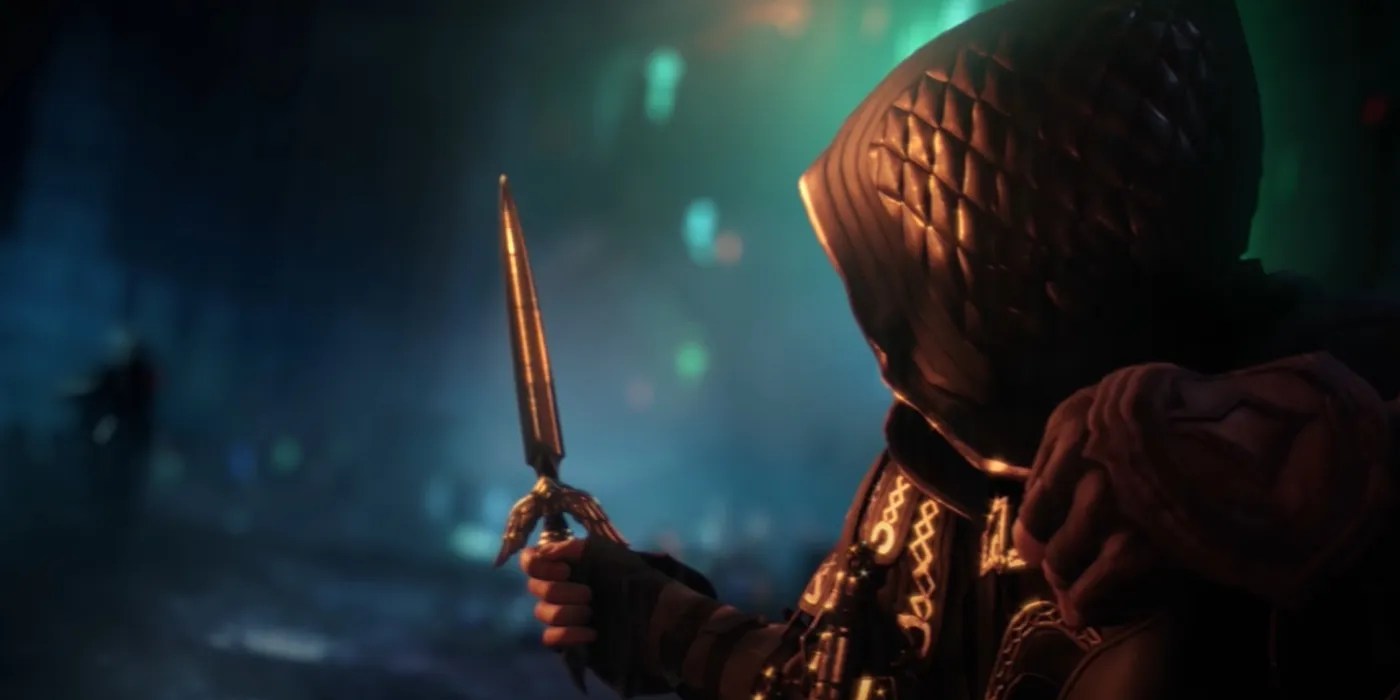BioWare has made an interesting point of focusing on the new protagonist of its upcoming fantasy RPGDragon Age 4. In both the games’ Gamescom video and the teaser trailer released earlier this month at The Game Awards 2020, the studio made it clear that the new player character would be the storytelling center of the next game, exploring “what happens when you don’t have power” and creating a main character with “no magic hand [and] no ancient prophecy” to back them up.
It’s an interesting change of tack from BioWare. While the renewed focus on the protagonist inDragon Age 4’s marketing doesn’t actually reveal all too much about the game itself, it does indicate where its storytelling priorities may lie relative to previous installments in the series. Building a story around the player character could makeDragon Age 4feel more character-driven than any of the games before it. However, it also comes with some huge risks.

RELATED:Dragon Age 4’s Aethestic is Awfully Reminiscent of Bloodborne
A Powerless Protagonist
One of the recurring themes ofDragon Age 4’s promotional material is that the player character will not have “power.” This likely doesn’t refer to magic. After all, it would be strange if the mage class was cut from the playable options, especially in a magocracy like Tevinter and afterInquisition’s The Descent DLC hinted at the possibility ofdwarven mages inDragon Age 4.
It appears to mean thatBioWarewill be trying to avoid “Chosen One” tropes where the character is imbued with an importance which is disconnected from their actions and more closely tied to fate. This could hint thatDragon Age 4players will have far more opportunities to determine the outcome of the game and the continent of Thedas – ironically, having no destiny might indicate that the ending of the next game is more flexible than previous titles.

Hopefully it will also mean that the reason this new player character is drawn into the fate of Thedas will be connected to their own actions and stories rather than their destiny.Dragon Age: Originsdid this very well, using its prologues to explain how each version ofthe Wardencame to find themselves as one of the only survivors of the Battle of Ostagar not through fate but pure escalating coincidence. While pure coincidence might not be a satisfying way out of a story’s main conflict, it can be a very satisfying way to get a game’s characters into trouble to begin with when handled with care.
BioWare’s Big Risk
Here’s the risk, however. While the player character ofDragon Age 4might be powerless, and that might make their journey have a more satisfying arc than previous protagonists likethe Inquisitor, it’s hard to see how BioWare can build a story around a strong central character that is also a necessarily flexible as its RPG formula requires.
BioWare games likeDragon AgeandMass Effecthave always had flexible player characters, but most of the emotional lifting and character driven parts of the story relied on the strength of their companion characters. Players already know at least two returning characters inDragon Age 4from The Game Awards trailer – fan-favorite dwarven rogueVarric Tethraswho narrates the teaser, and Solas the Dread Wolf as the game’s antagonist.

This could mean thatDragon Age 4will attempt to strike a balance, making its player character more believable and satisfying by avoiding tropes to do with destiny, while still ultimately relying on the other characters to drive the story while the player character remains in a primarily reactive role. However, ifDragon Age 4’s trailerskeep centering its player character as the driving force behind the game’s plot, that version of the game risks disappointing fans.
RELATED:How Dragon Age 4’s City Could Outshine Kirkwall
How BioWare Could Find Balance
There are some things BioWare could do to makeDragon Age 4’s player character stand out. First, as inOrigins, players should have the opportunity to roleplay as their character before the plot’s inciting event. This allowed for some fantastic character arcs in the first game. A dwarven noble player, for example, could spend the entire prologue dismissing those beneath them and shunningDragon Age’s surface dwarvesbefore being betrayed by their own brother and forced to live on the surface themselves, making the ultimate sacrifice for that world if they choose to die fighting the Archdemon.
Ultimately the character arc of an RPGs' player character usually takes place more in the mind of the player than the game itself, but to give players a helping hand BioWare can give them plenty of roleplaying opportunities to experiment with their character early on. That means providing meaningful choices at all levels of the game. In dialog, players shouldn’t just be reduced to picking from Diplomatic, Humorous, or Aggressive options like inDragon Age 2.
InDragon Age: Originsdialog options, especially early on, could mean the difference between life or death in certain situations. To use the dwarf noble example again, players could have conversations with rival nobles and then immediately instruct their second-in-command to have that noble assassinated for impudence. The differences in dialog options can’t just feel like differences in flavor that still ultimately progress the player along the same track. If the story is going to feel like it belongs to the player, every opportunity should be taken to allow them to impact the world, even if some of those ways are smaller than others.
Dragon Age 4’s focus on its protagonist may be high risk, but it could also be high reward. Recent BioWare protagonists like Ryder and the Inquisitor haven’t quite been able to capture the imagination in the same way as older ones like Shepard orDarth Revan. Perhaps by putting control back in the hands of the players, BioWare will find that with the right tools, fans can build their own stories.
Dragon Age 4is in development.
MORE:Dragon Age 4 Needs to Play Out These Big Decisions from Previous Games